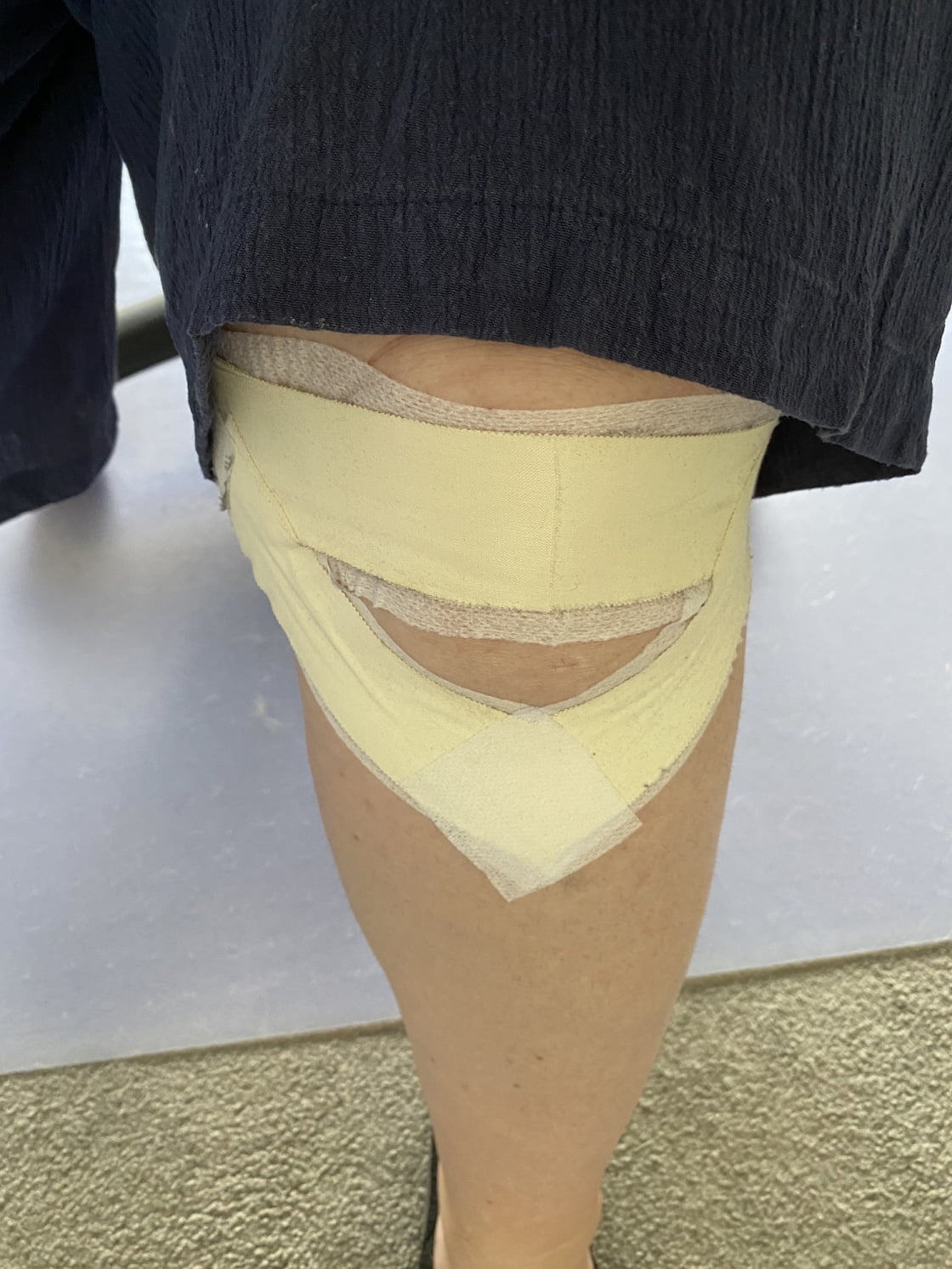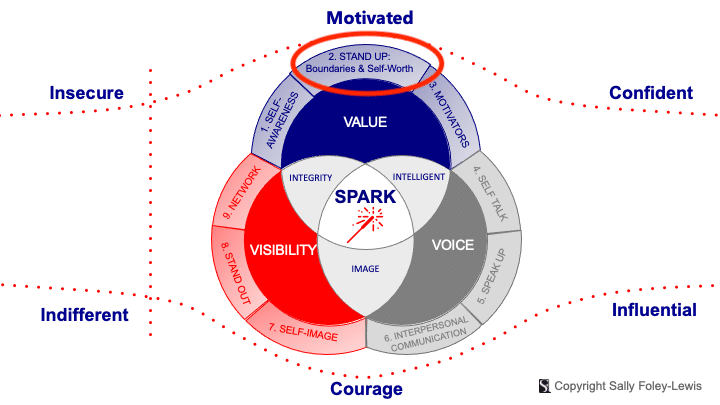I’ve recently injured my knee. As part of the mending process, I’m working with my Physio to reactivate my vastus medialis oblique! This VMO – inner thigh muscle – it’s just above the kneecap and it helps to stabilise the kneecap when you bend your knee.
Activating a separate muscle from a group of muscles is not easy at first. I have to create a new neural pathway. Over the last week I’ve had to concentrate quite intently on strengthening just that muscle. I’m improving and the process:
- is a great example of shifting from little or no awareness of something within my own body, and that I need to re-build that awareness for my own and others benefit; and
- is a great practical example of the effort it takes to create new habits and neural pathways.
Boundaries are like my VMO. If you’re not aware of them then you’re likely to eventually get yourself into some trouble.
A lack of boundaries can lead to overly dramatic or challenging relationships; difficulty making decisions; feeling guilty and / or anxious a lot of the time due to not wanting to let people down, being rejected, wanting people’s approval; and it can also leak into passive aggressive behaviour, feeling annoyed with others, and feeling disrespected.

Ponder these questions:
- Did you or any of your team show up in your pyjamas to an internal / team online meeting during 2020?
- Did you sacrifice your work commute time more than ever before during 2020?
- Did you find yourself working even longer hours during the toughest times in COVID?
- Have you got colleagues or team members who share information with you that you’d rather not know, is a little too private for your comfort levels, or not really suited to a work environment?
- Do you give in rather than holding your ground?
- Do you work yourself to the point of exhaustion?
- Do you trust everyone / no one?
These questions are designed to help expose where boundaries might be held too loosely or too tightly? These are just a few examples of boundary prompters.
What you might think acceptable banter during a team meeting might be uncomfortable for another. Boundaries are personal and they are impacted by values and impact self-worth.
Not getting fully dressed up – e.g. wearing more casul attire or pyjamas – during an online internal team meeting might not be an issue, especially during COVID. Is this an issue? Does this cross a boundary for you?
Normally, but especially during COVID, I was adamant that I got up, got dressed, and showed up everyday! It was what I needed to do for my own wellbeing, self-worth, values alignment and productivity.
If you have a value of being helpful, if taken to an extreme, without being clear of what help in healthy doses and degrees means, the chances of crossing boundaries will be high. A lack of clarity of what the boundariy actually is makes it all too easy to cross that boundary.

As a leader, your team look to you for signs of what’s okay and what’s not, especially those nuanced situations that policies and procedures don’t quite cover. Team culture and performance are easily negatively affected when boundaries are too loose, too tight, inconsistent or non-existent.
What message do your boundaries – and how you hold them – send?
For You:
- Are you clear about what your boundaries are?
- Are you consistent in holding your boundaries?
- What are your rules for managing your boundaries?
For Your Team:
- Do you know the boundaries your individual team members have?
- Do you inadvertently cross them? Do you know if you have? {This is not about guilt or blame, this is about awareness.}
- Do you let others cross your boundaries?
I respect my boundaries, I insist that others respect them too.
Tips for Setting Boundaries
1. Self-Awareness is critical for understanding what boundaries you need for you in your self-leadership and as a leader of others.
Self-awareness is an ongoing journey. All positive efforts are worth it to learn more about what values are most important to you, what makes you tick, and what you therefore will and won’t hold as a boundary.
There are thousands of tools you can use. I work with leaders using DISC behavioural styles, EQ2 which is an emotional intelligence tool, and Motivators which helps you identify your true motivators. If any of these interest you, let’s chat.
2. Rather than thinking of creating barriers, or that if you set up these rules for yourself these will be seen and treated as barriers, consider a more positive frame of reference. Boundaries are not barriers: boundaries provide helpful guidance for yourself and others
Boundaries help identify responsibilities and agreements.
3. Do you first! Identify what the most important work you need to do and you’re responsible for first. Prioritise your most important work. This will help you find a level of control, set responsibility and reinforce a productive boundary.
4. Empathy!Look at the situation from your team members / colleagues / clients / senior leaders perspective. It’s easier to respect someone’s boundary when you know they care about you and they appreciate the situation you’re in. For others to respect your boundaries, make sure you appreciate the situation from their perspective.
5. Benefits over fears. Be sure to make agreements and give based on the team’s or work’s greater good; for the long-term benefit rather than any immediate fears. Having healthy boundaries is not simply saying “no” and defending yourself consistently. It’s about making agreements that don’t undermine anyone, including you. Think of if+then: e.g. “If I do this now, then we need to discuss how this is handled long-term.” “If you do this now to quickly clear it, then we will meet on Monday to find a better long term way to handle this.”
Boundaries make you a better leader. You have a greater sense of self, control and respect for both yourself and your team. Your team will have greater confidence in you and your leadership.
What workplace / professional boundary do you need to focus on?




